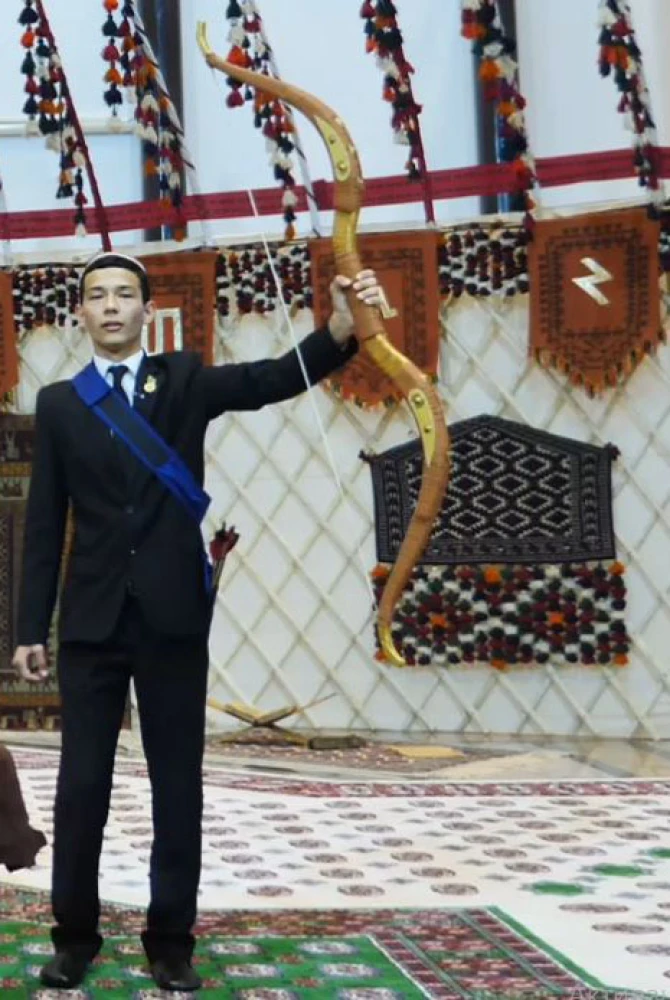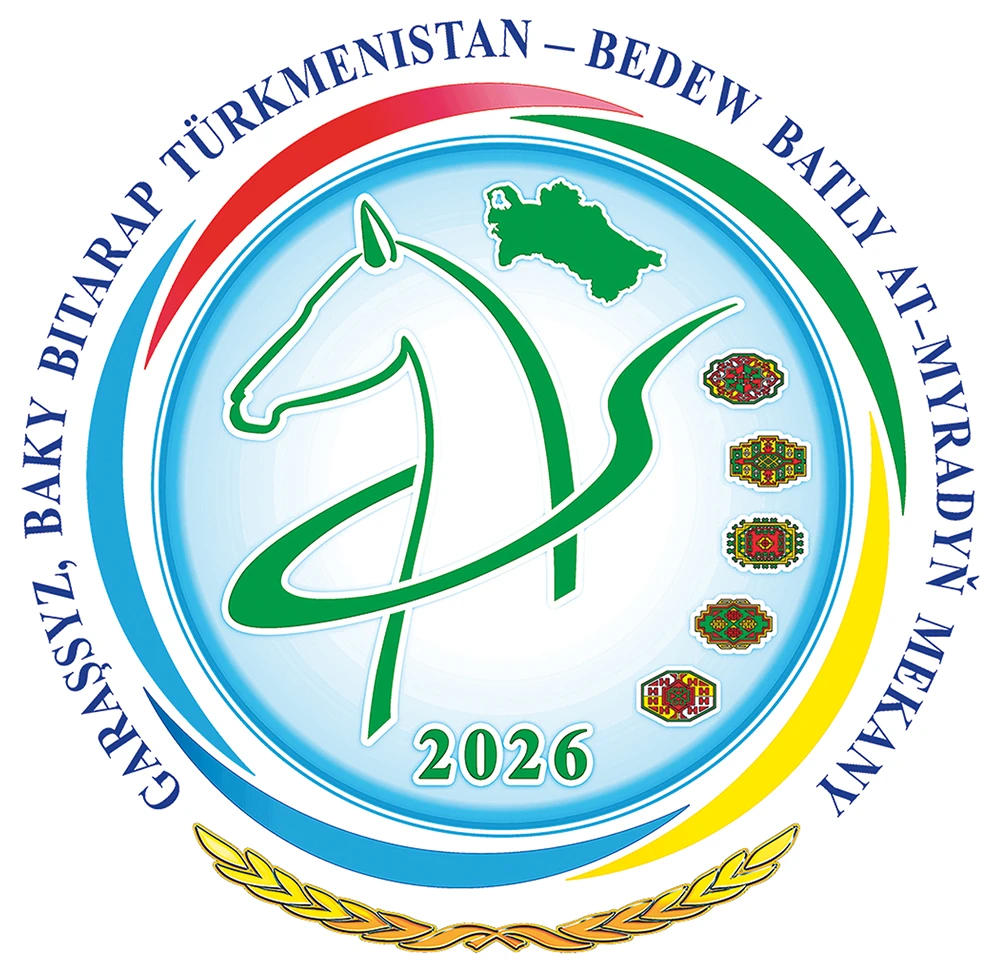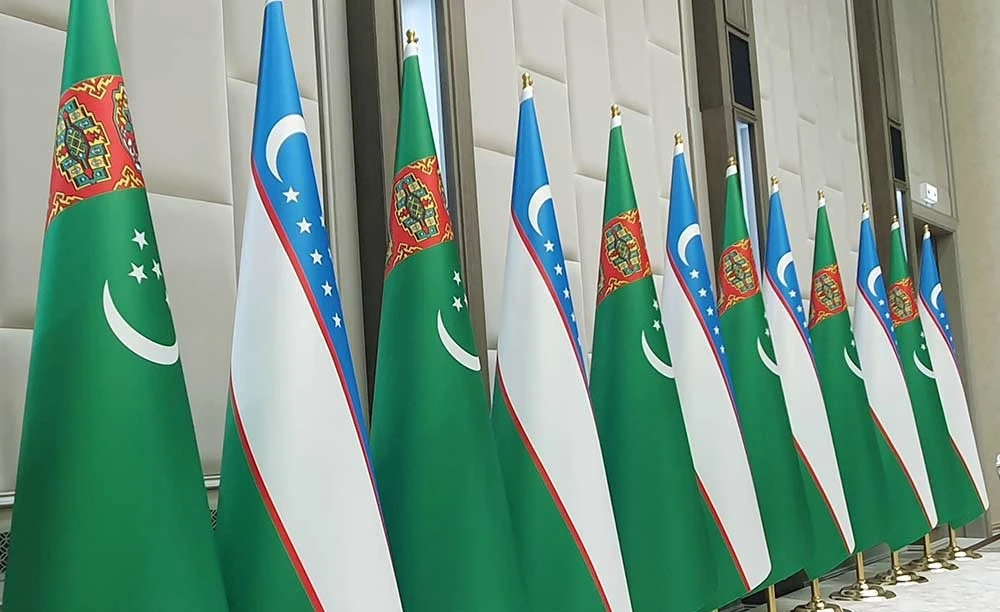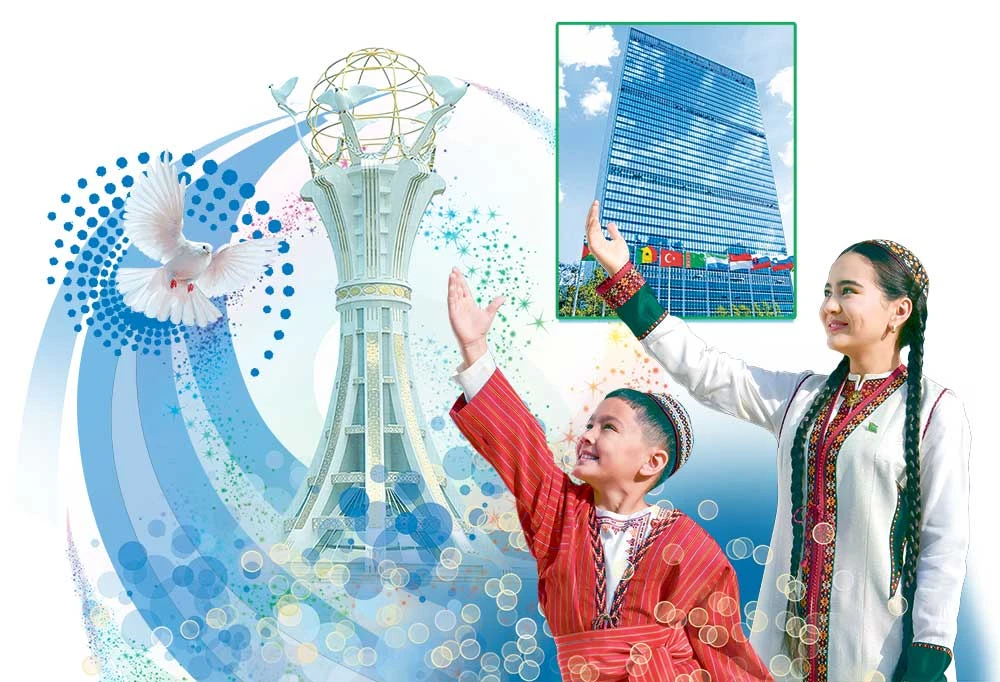
30/11/-0001
1334
Negotiation as a tool of diplomacy and peace
“Neutral, peaceful Turkmenistan will do everything necessary
for peace and security consolidation on our planet, to contribute to
development and progress of human civilization.”
President of Turkmenistan
Gurbanguly BERDIMUHAMEDOV:
Diplomacy is the activity or profession of managing relations among different states. Diplomacy is the main instrument of foreign policy. In contemporary’s world political society, the use of diplomacy is a tool that allows countries to work out their differences and solve issues in an attempt to avoid war. International affairs such as international treaties, agreements and alliances are usually the result of diplomatic negotiations and processes.
The history of diplomacy extends to the 14-th century BC. The word itself, actually, derived from the 18-th century French term diplomate, which roughly means “an object folded in two”. At first, it seems strange to get the meaning of it, but prior to invention of the envelope, folding a document served to protect the privacy of its contents in the practice of sovereigns providing a folded document to confer some sort of official privilege is understandable.
There are a variety of types of diplomacy, diplomatic categories and diplomatic strategies, all of which is necessary to solve global problems such as climate change, water security, global economy and so many others, employed by organization and governments to achieve their aims and fulfil their goals.
The paper focuses on diplomacy, its art and soul, namely: negotiations as a joint search for an agreement between two or more parties, more clearly about peace that diplomacy brings.
Will humanity be able to pave the way for relations between all countries and peoples, between all civilizations on the basis of exclusively peaceful cooperation, thereby fulfilling the people’s dream of a world without wars and violence? It seems to me that the answer to this question largely depends on how much the international community learns to resolve the emerging problems only by peaceful means, through negotiations. This way of interaction is vital for people to communicate in various spheres: political, economic, humanitarian – wherever coordination of interests and cooperation is required. The progress of humankind, the process of globalization, the emerging multipolarity of the world urgently demand from the international community collective action, a coordinated strategy and sustainable development. The path to this lies through negotiations as one of the most essential means of communication, competition and interaction among states that leads to the peaceful, friendly, mutually respectful and thriving world.
Negotiations, which involve taking into account and respecting the ethno cultures of divergent countries and society and matching their values, open up opportunities for the formation and enhancement of the role of the moral component in relations among people and states within the framework of the universal principles of democracy. All this emphasizes the importance of improving negotiation skills using constantly enriching international experience and with a broad interdisciplinary approach, involving the use of such sciences as international law, world politics, economics, international relations, history, country studies and psychology – to the entire amount of knowledge related to international affairs. The negotiating practice that develops on this basis and the patterns that accumulate during its implementation contribute to the formation of a universal culture of negotiation.
Negotiation is one of the most crucial forms of human communication. What is their essence? The simplest definition of a negotiation is that it is an exchange of views for a diversity of purposes. At the same time, the specificity of the negotiations lies in the fact that the participants in the exchange of views, as a rule, strive to come to an agreement among themselves on the premise that each of them has the keys to such an agreement. People have been doing from time immemorial, and therefore, from time immemorial, negotiations have contributed to their understanding of each other, the solution of cases, ranging from the most common and ending with those on which the fate of war and peace, the future of the world, of all humankind depend. As for diplomacy, it exists in order to facilitate communication between states and peoples. In this sense, the diplomat is perpetually in the process of arbitration (negotiations). Before the appearance of the terms “diplomacy”, “diplomat” in their modern sense, the diplomatic profession was generally identified with negotiation, and diplomats were called as people engaged in negotiations – “negotiators”. In my opinion, negotiations are the most responsible and difficult type of diplomatic activity. Their results entail international obligations for states. People with the ability to negotiate constitute the gold fund of diplomatic services around the world. As for independent negotiation, as one of the renowned and prominent Soviet and Russian diplomat A.G.Kovalev wrote, “It is entrusted only to those … who have already amassed a great deal of practical experience and mastered the art of “aerobatics” in diplomacy.” All this underlines the growing importance of mastering negotiation skills. Mastering these negotiation skills are imperative for those who intend to engage in negotiation activities and who are generally preparing for diplomatic work.
Under the leadership of the President of Turkmenistan Gurbanguly Berdimuhamedov, permanently Neutral and Independent Turkmenistan steadily improves the way of multilateral national development. As our esteemed President says, “Our State Flag is being flying in different states of the world as a sign of close relations, friendship and cooperation. Being committed to the principles of peace and strictly following the policy of neutrality, Turkmenistan maintains diplomatic relations with 142 countries of the world and is a member of 44 international organizations”, Turkmenistan decisively develops relations with neighboring states and prestigious international organizations, makes adequate input in maintaining regional peace and security, as well as stability and steady development.
The consistent proposal of solutions to indispensable worldwide problems and realization of large international initiatives of Turkmenistan aimed at providing peace, security and stable development have resulted in accumulating and deserving high authority on the world arena as the friendly and reliable partner.
In implementing strategic objectives determined in the “Concept of foreign policy of Neutral Turkmenistan for 2017-2023,” the relations of Turkmenistan with foreign states as well as international structures consistently develop on mutually beneficial base. In this context, it is necessary to underline that owing to the approaches of the President of Turkmenistan, and demonstrating its political and diplomatic model, our country reached high efficiency in resolving regional issues, strengthening friendly ties with neighboring and other world countries. Taking into consideration new conditions of modern global developments, including national and global interests, neutral Turkmenistan maintains multilateral cooperation with the countries in Asian-Pacific region, Middle East as well as Europe and America. Turkmenistan also collaborates with authoritative international structures such as the United Nations, European Union, Commonwealth of Independent States, Shanghai Cooperation Organization, Organization for Security and Cooperation in Europe, Non-Alignment Movement and Islamic Cooperation Organization.
Yagshymyrat OVEZOV,
XI class pupil of the 87th specialized
secondary school
for in-depth
teaching of languages in Ashgabat
“Parahatçylygyň ýaş çaparlary” atly akyl-paýhas bäsleşiginiň I saýlama tapgyrynyň 1-nji oýnunyň ýeňijisi
Bu barada okap bilersiňiz:


